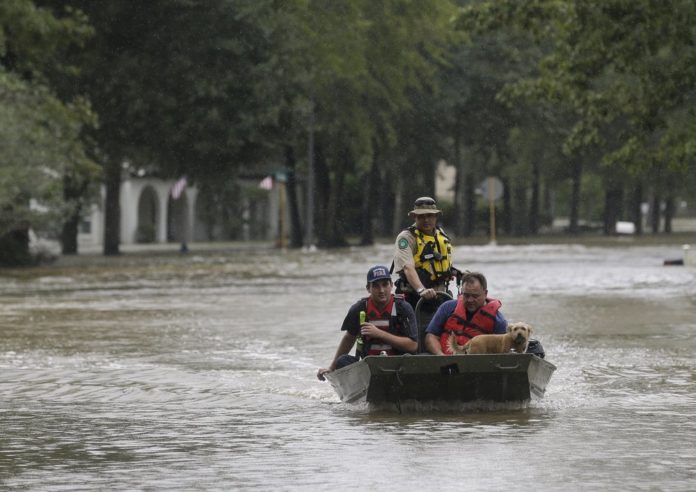
By Matthew Muir | Staff Writer
After tropical storm Imelda drenched Texas’ Gulf Coast, some of Baylor’s Houston natives shared how it felt to see their home city flooded.
Imelda made landfall last Tuesday and pounded southeast Texas through the end of the week. The storm left five dead and dropped as many as 43 inches of rain on some parts of the region, becoming the seventh-wettest tropical storm in United States history and leading Governor Greg Abbott to declare a state of emergency.
Before college, senior Maryssa Smith lived in Houston her entire life. Smith said other floods from past years desensitized her to the damage brought by Imelda.
“I was there when Harvey hit… honestly I’m used to it flooding in Houston,” Smith said. “Of course it’s tragic and it’s sad but it’s not like ‘Oh, an earthquake just hit out of nowhere…’ it’s something you just kind of expect living in Houston.”
Houston junior Alexander Hale said that the flooding from Imelda also reminded him of the damage done by Hurricane Harvey in 2017.
“I thought it was really discouraging [after] the city rebounded from Harvey two years ago,” Hale said. “It felt ominous, almost like a repeat of Harvey from what I saw on the news.”
Hale also said that hurricanes, tropical storms and floods are an inevitable part of life in Houston.
“I think that with Houston being a sea level city, it’s always in a little bit of danger. It’s not elevated; it’s just a tabletop,” Hale said. “We are near the Gulf and so we’ve always been a city that gets hit by hurricanes or is affected by them, so I’d definitely say it’s just part of the unlucky hurricane season.”
Because of Houston’s vulnerability, Hale said the city needed to “start taking more measures on how to better plan for heavy rainfall.”
Hurricane Harvey quickly weakened from a Category 4 hurricane to a tropical storm after landfall, but moved slowly past Houston and caused catastrophic flooding. Smith worried about people ignoring warnings for weak storms and being caught unprepared for a flood.
“We just had Harvey— that was atrocious. Now we’re having [Imelda]… the crazy thing is these storms are starting to be lower categories,” Smith said. “It’s starting to become less about the wind and more about how much water is actually coming… people will stay because they’re— I don’t want to say misinformed—but they’re not understanding. Just because the wind speed isn’t bad doesn’t mean there’s not going to be a ton of water coming and they’re not preparing for that.”
Both Hale’s and Smith’s families were lucky to emerge from Imelda with their homes intact. Hale said his family’s home avoided being flooded, but just barely.
“My family is doing well but definitely there was a lot of prayer during that storm,” Hale said. “There were lots of things flooded and we were worried my house was going to flood… I know that it was close.” Smith’s family lives in the southeast suburbs of Houston, which she said is as a “pretty decent area” to be in to avoid serious flooding. Smith said her immediate family in Houston weathered the storm without many issues.
“They’re fine… it’s not like water is pouring into our house or anything,” Smith said. “[I’m] in college so I haven’t talked to all of my family but I haven’t heard from my mom that any of our family members have been super affected… I know for Harvey a lot of my family members [were].”





